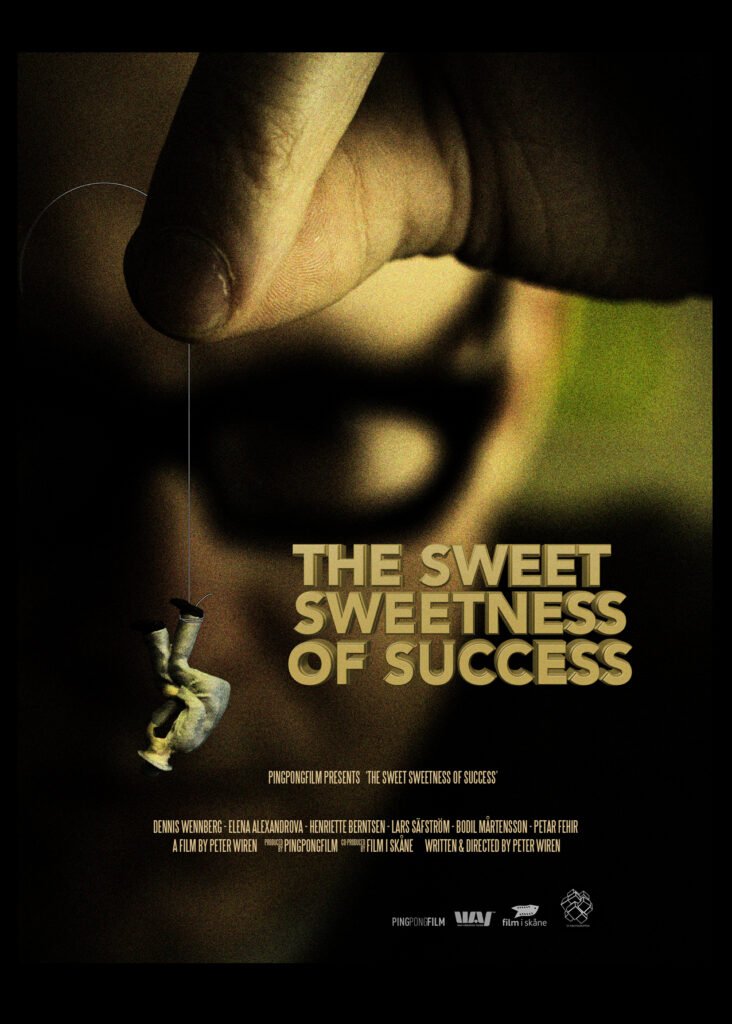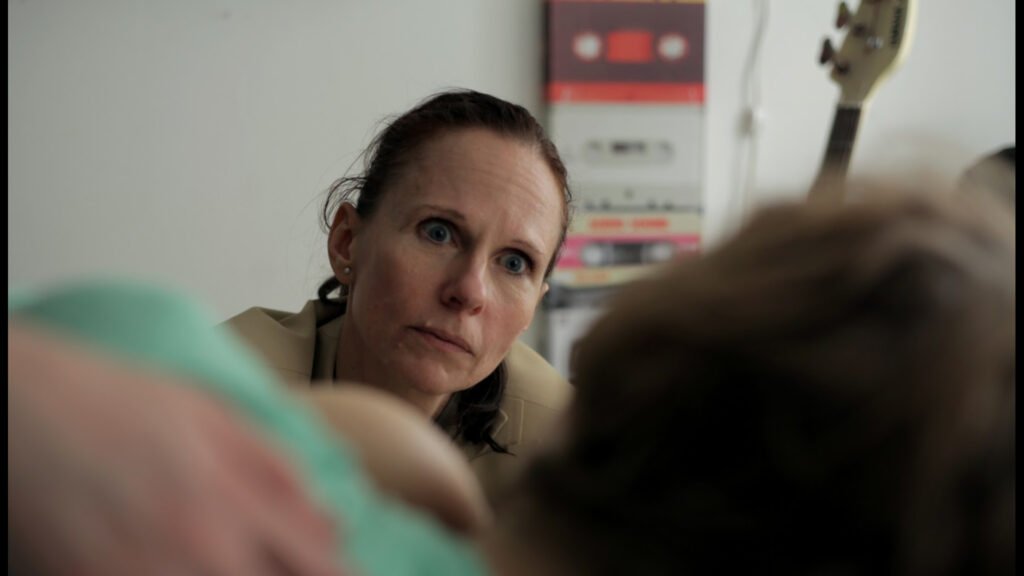FiMö asked …
Your character had been looking for a new idea for a film for 20 years and then after rediscovering something from his childhood, he sets off to work on this film for 6 months. Can you share with us what gave you the idea for this film? And how long it really took?
Peter Wirén: I once had an Idea for a real documentary where I would shoot a friend and give him a weird mission like ”I want you to ski-jump once in your life”. The film would be about him dealing with his fears and perhaps overcome them in the end. But not necessarily. The film would be as entertaining if he didn’t succeed. The struggle itself would be the entertainment and motor of the story. However, I’m a kind person (and also a coward) and couldn’t think of any friend I would do this to. So the idea was thrown in the drawer. Later when we started up ”St:Knutsgruppen” and I desperately needed a story for a feature that was cheap to shoot, somehow this old idea came up again. I kept the idea of a documentary but replaced myself with this unscrupulous alter ego Peter Von Rehn.
FiMö: I understand that the scene in the police interrogation room adds significant tension to the film, but when I was watching it, I thought to myself: I doubt one could film in there. This doubt however is proof of how effectively the film drew me into to its documentary premise. I wonder, did you have other moments, filmed or not, when you compromised either to serve the narrative or to maintain the sense of it being documentary?
Peter Wirén: When you work with a small budget you have to be more creative in getting the location than to actually write the script. Actually locations are the biggest obstacles in low budget filmmaking. Actors can be hard to get but when you get them they are often reliable. Locations are another story. The owner can suddenly change their mind or suddenly decide to put a lot of stuff in the room that was empty the day before. Or the person you have talked to has a boss that suddenly see a chance to earn some money from your needs (this is unusual but these things happen). Of course you can be lazy in the writing process but you want to be wild and limitless there so you probably end up with a line like ”the man wakes up in the kings bed in Versailles.” And when you have written something like that it’s almost impossible to get that image out of your mind so you have to get it in the film in some way. The scene/location I had most anxiety to get in this film was the one where the music composer hired a symphony orchestra to record the score for the film. The humor in this scene depends on the visuals of all the musicians. So what to do? I certainly couldn’t pay a lot of extras with musical instruments. I asked an old neighbor who was a musician in Malmö philharmonics and finally got permission to go inside the concert venue for two minutes before they started rehearsing. So me and the actor playing the composer (who is a composer in real life as well) had one chance to shoot the scene. The reason it worked in this case was that the genre “mocumentary” allows you to do these very fast things with a hand-camera and no need for lights etc. A more traditional film language wouldn’t allow this scene to be this fast to shoot so the documentary style gave me a lot of freedom and possibilities.
FiMö: The acting is so strong that it’s easy to forget that these are actors, not subjects in a documentary. What, if anything, is different for a director working with actors in this style of film, as opposed to an apparently fictional film?
Peter Wirén: Absolutely! It would be impossible to hand over a written script to the actors and expect it to sound real. I knew and communicated the meaning of the scene with the actors and then we just improvised. The rig I had with two cameras with different focal lengths made it possible to edit away big piles of useless material but still make it look like its almost unedited.
FiMö: The film puts us in the mood to learn about filmmaking so, for the record, do you rent police uniforms and put them on actors or hire real police in uniform as extras?
Peter Wirén: In the case of the police I hired costumes and put them on actors. In other scenes (like the above-mentioned orchestra scene) I did the opposite. It depends on how much talk there is and what in the end is easiest to do.
FiMö: Another for the newbie. You shoot a few scenes in SVT, and I know you work there, but in your experience, do you think companies are reluctant to accommodate filmmakers? How sufficient is it to thank them in the credits, or how much can one expect to pay? Do you have any advice new filmmakers could use on this subject?
Peter Wirén: You have to be extremely humble to everyone that helps you in any way to get the film made. Give everyone a credit is my motto. Even if you edit them out if the final version. They sacrifice their time and talent/property because you want to play and have fun. My experience is that when people understand that you have a limited amount of money they want to help you as much as they can. People in general love to be apart of something good. Your task is to convince them that the film is going to be as good as you yourself think it will be. If you can do that almost everyone opens up their doors and their hearts. It surprises and excites me every time.
Thanks Peter!

Peter Wirén works at SVT in Malmö and is an actor and producer, known for The Sweet Sweetness of Success (2015), Case Study and Robins (2006).
Also by Peter Wirén on filmimalmo.se


